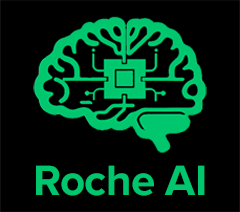Unlocking the Power of AI for Business Growth and Innovation
Business AI is no longer just a buzzword. It’s transforming businesses across every industry by enabling smarter operations, faster growth, and limitless opportunities for innovation. Whether through automation or improved decision-making, business AI is helping companies achieve new levels of success. But what makes business AI such a game changer for growth? In this post, we’ll explore how business AI is transforming operations, driving innovation, and unlocking new paths for growth. Let’s dive in.
How AI Transforms Business Operations

AI is redefining how businesses operate by streamlining tasks that were once labor-intensive. From automating data entry to providing deep insights from analytics, AI enables companies to operate more efficiently.
One of the biggest impacts of AI is on task automation. In many industries, repetitive tasks take up valuable time. With AI, businesses can now automate these processes, freeing employees to focus on more complex work. This shift leads to better use of time and resources.
For example, in customer service, AI chatbots can handle basic inquiries, allowing customer support teams to focus on high-level issues. The ability to quickly access data through AI also improves decision-making, providing teams with the information they need to act fast.
As AI continues to develop, it’s also playing a role in creating personalized customer experiences. From online retail to financial services, businesses are using AI to recommend products, personalize marketing, and predict customer needs.
The transformation doesn’t stop there. AI also helps in areas like fraud detection, cybersecurity, and compliance, ensuring that businesses operate securely in a digital landscape.
AI’s Role in Automating Repetitive Tasks
One of AI’s biggest strengths lies in its ability to take over mundane tasks that often slow businesses down. From scheduling to data processing, AI reduces the burden of repetitive tasks.
For example, AI can manage emails, sort data, and even analyze patterns faster than a human ever could. This not only saves time but also minimizes errors, increasing efficiency.
In manufacturing, AI can predict when equipment needs maintenance, preventing costly breakdowns. In HR, AI tools streamline recruitment by scanning resumes and shortlisting candidates. These are just a few ways automation is boosting productivity across industries.
Improving Decision-Making with AI Insights
AI isn’t just about doing tasks; it’s about doing them smarter. With advanced analytics, AI provides valuable insights that help businesses make better decisions.
Take, for instance, predictive analytics. AI can forecast trends by analyzing data, allowing companies to make strategic moves ahead of time. This is particularly helpful in industries like retail, where predicting customer demand can significantly impact profitability.
Beyond predictions, AI helps uncover hidden patterns in data. These insights can lead to improved marketing strategies, better product design, and smarter investments.
Innovation Through AI-Powered Strategies

AI is opening new doors for innovation in business. From improving customer engagement to developing new products, AI-powered strategies are setting companies apart from their competition.
One key area where AI drives innovation is product development. By analyzing data, AI helps businesses understand what customers want and how to meet those needs faster. This has shortened product development cycles and improved the quality of new products.
AI also enhances customer engagement. Through chatbots, personalized marketing, and predictive sales models, companies are delivering more tailored experiences. This not only boosts customer satisfaction but also leads to increased loyalty.
AI-Driven Product Development
AI is transforming product development by providing insights into customer behavior. With AI tools, companies can now identify what features customers are looking for and adjust their products accordingly.
For instance, AI can analyze customer reviews, social media comments, and sales data to uncover trends. This helps businesses anticipate needs and stay ahead of the market.
By leveraging AI for rapid prototyping and testing, companies can speed up their development process, getting products to market faster. It’s a strategy that’s helping businesses thrive in competitive markets.
Customer Engagement with AI
Customers today expect more personalized experiences. AI helps businesses meet this expectation by analyzing customer behavior and predicting future needs.
For example, e-commerce sites use AI to recommend products based on previous purchases. AI chatbots also engage with customers around the clock, answering questions and resolving issues. These tools help businesses stay connected to customers while reducing response times.
This level of engagement builds trust and improves the overall customer experience, leading to stronger relationships and long-term success.
Growth Opportunities with Business AI
Business AI is not just about improving day-to-day operations—it’s also about driving growth. By automating processes, improving decision-making, and engaging customers more effectively, AI helps companies scale.
As businesses look to expand, AI provides the tools needed to grow efficiently. Whether it’s through streamlining operations or creating new revenue streams, AI is central to modern business growth strategies.
With AI technologies becoming more accessible, even small businesses are tapping into these growth opportunities. From startups to global enterprises, the impact of AI is far-reaching.
Scaling Operations with AI Technologies
AI makes it easier for businesses to scale by handling larger workloads with greater efficiency. In industries like e-commerce, AI enables faster shipping, smarter inventory management, and better customer support.
For example, AI can analyze market trends and suggest ways to optimize supply chains. This reduces waste, cuts costs, and improves delivery times.
Scaling operations is about doing more with less, and AI helps businesses achieve that by automating complex processes while maintaining high-quality outcomes.
AI and Competitive Advantage
In today’s market, companies that adopt AI gain a significant competitive edge. AI allows businesses to innovate faster, offer better customer experiences, and operate more efficiently.
For example, companies using AI-driven marketing can better target ads, leading to higher conversion rates. AI also gives businesses insight into competitors, helping them stay ahead of industry trends.
By leveraging AI, businesses position themselves as leaders in their fields, offering cutting-edge solutions that meet the demands of modern consumers.
Challenges and Best Practices in AI Adoption

Despite its benefits, AI adoption comes with challenges. Businesses must ensure that AI tools are used responsibly and ethically.
One common challenge is integrating AI across departments. While AI might work well in one area, it needs to align with overall company goals to be truly effective.
By establishing clear objectives and fostering cross-department collaboration, companies can overcome these challenges and maximize the benefits of AI.
Addressing Ethical Concerns in AI
As AI becomes more widespread, ethical considerations are more important than ever. From privacy concerns to algorithm bias, businesses must ensure that AI is used responsibly.
For instance, ensuring that AI models are transparent and free from bias is essential in sectors like hiring, where fairness is key. Regular audits and updates to AI systems can help maintain ethical standards.
Ensuring AI Integration Across Departments
AI is most effective when it’s integrated across all business functions. However, this can be challenging if departments don’t communicate or share data effectively.
Companies can ensure smooth integration by fostering collaboration and aligning AI initiatives with business goals. This not only improves efficiency but also creates a more unified business strategy.
Final Thoughts on Business AI
Business AI transforms companies’ operations, driving innovation, efficiency, and growth. By automating routine tasks and providing deep insights for smarter decision-making, business AI allows organizations to streamline processes and focus on high-value activities. This results in more efficient operations and a stronger competitive edge in an ever-evolving market.
Through AI, businesses can scale faster, enhance customer engagement, and develop new products more effectively. AI-driven strategies empower companies to predict trends, adapt quickly, and stay ahead of the competition. The potential for growth and innovation with business AI is vast, offering opportunities that were previously out of reach. As AI continues to advance, its role in business will only expand. Companies that adopt AI today will not only benefit now but will also be better prepared for the future. Embracing business AI is key to long-term success in an increasingly digital and competitive landscape. The time to act is now.





